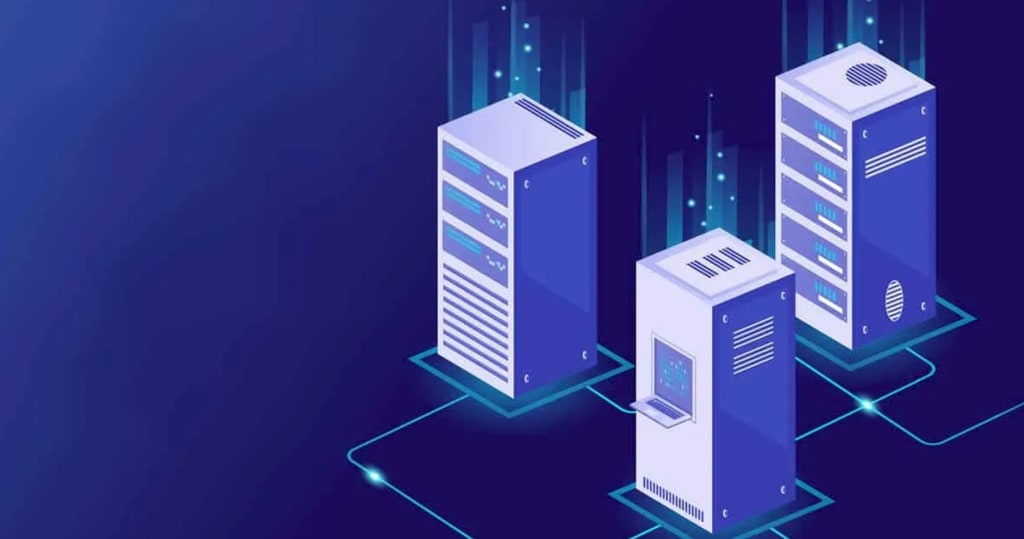Types of Computer Servers and How They Function
Types of Computer Servers and How They Function

In the rapidly evolving landscape of information technology, computer servers play a pivotal role in enabling various digital services. Understanding the different types of servers and their functions is crucial for anyone navigating the digital realm. This article explores the diverse world of computer servers, shedding light on their unique characteristics and applications.
The Foundation: What is a Server?
Before delving into the specifics, it's essential to grasp the fundamental concept of a server. In the simplest terms, a server is a computer or system that responds to requests from other computers, known as clients. Servers are designed to provide resources or services, facilitating communication and data exchange within a network.
Types of Computer Servers
1. Web Servers
Web servers form the backbone of the internet, handling requests from web browsers to deliver website content. Commonly used web server software includes Apache, Nginx, and Microsoft Internet Information Services (IIS). Understanding how web servers function is crucial for website owners and developers aiming to optimize performance.
How Web Servers Work
Web servers operate on the client-server model, responding to Hypertext Transfer Protocol (HTTP) requests. When a user enters a website URL, the web server processes the request, retrieves the necessary files, and sends them back to the user's browser for display. This process is integral to the seamless browsing experience we enjoy daily.
2. Database Servers
Database servers manage and organize vast amounts of data, serving as repositories for information crucial to applications and websites. Examples of popular database management systems include MySQL, PostgreSQL, and Microsoft SQL Server.
The Role of Database Servers
Database servers store, retrieve, and update data in response to queries from client applications. They play a critical role in ensuring data integrity and accessibility. Understanding the intricacies of database servers is essential for businesses relying on robust data management.
3. File Servers
File servers simplify data storage and access within a network by centralizing files. They allow users to share documents, images, and other files seamlessly. Common file server protocols include Server Message Block (SMB) and Network File System (NFS).
Enhancing Collaboration with File Servers
File servers promote collaboration by providing a centralized location for team members to access and edit shared documents. Businesses and organizations benefit from the streamlined workflow and improved data security offered by file servers.
Functions and Features Across Server Types
As we explore various server types, it becomes evident that each serves a unique purpose. However, several common functions and features unite them in their role as information gatekeepers within networks.
1. Resource Sharing
All servers share the fundamental function of resource sharing. Whether it's web content, database information, or files, servers facilitate the seamless exchange of resources among connected devices.
Optimizing Resource Sharing
Efficient resource sharing is achieved through the implementation of load balancing and caching mechanisms. These strategies enhance server performance, ensuring a smoother experience for users interacting with digital services.
2. Security Measures
Security is paramount in the realm of servers, given their central role in managing and distributing sensitive information. Server administrators employ various security measures to protect against unauthorized access and potential cyber threats.
Implementing Robust Security Protocols
Security measures include encryption, firewalls, and regular software updates. Understanding these protocols is crucial for maintaining the integrity of servers and safeguarding valuable data.
Where to Buy Computer Servers?
When seeking reliable sources for purchasing computer servers, reputable vendors such as Dell, HP, and Lenovo stand out. These companies offer a range of server solutions, ensuring quality, performance, and reliable customer support. In the ever-expanding landscape of computing, Computing Worlds emerges as a trusted guide. With a commitment to cutting-edge technology and a diverse array of products, Computing Worlds is at the forefront of navigating the complexities of the digital world.
Why Select Computing Worlds?
Computing Worlds ensures access to a curated selection of top-tier computer servers. With a focus on innovation, quality, and customer satisfaction, Computing Worlds stands out as a preferred destination for those seeking reliable and advanced computing solutions.
Whether you're a website owner, a developer, or an IT enthusiast, understanding the functions and characteristics of different servers is essential. This knowledge empowers individuals and businesses to make informed decisions regarding their digital infrastructure, ultimately contributing to a more efficient and secure online environment.
About the Creator
Enjoyed the story? Support the Creator.
Subscribe for free to receive all their stories in your feed. You could also pledge your support or give them a one-off tip, letting them know you appreciate their work.





Comments
There are no comments for this story
Be the first to respond and start the conversation.